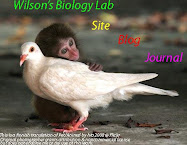
A neurological disorder is now being linked to DNA
Post Traumatic Stress Disorder (PTSD) is a psychiatric illness that affects the brain after it goes through a traumatic experience. It was first identified in Vietnam veterans who have experienced traumatic event. The types of traumatic events range from losing a loved one, experiences in prison, assault, domestic abuse, rape, war experiences. Symptoms of the disorder may be immediate or delayed up to 6 months after the event. It can affect individuals of any age, race, or gender. Everyone experiences some stress from traumatic events but not every one gets PTSD. Physicians and psychologists can interview patients with symptoms of PTSD, though there is no definite test to diagnose it. Diagnosis is based on the onset of symptoms, history of trauma, and history of traumatic event.
A recent study identified genes as potential biologic markers linked to PTSD. Scientists involved with the study screened surviving victims of the Rwandan genocide. The death toll of the genocide has been estimated at 1 out of 5 people or at least 500,000 people. Exact numbers are not available, but estimates have determined most Rwandans experienced significant trauma by witnessing traumatic events or losing loved one. The study evaluated blood samples and reviewed medical records from 424 Rwanda genocide survivors living in the Nakivale refugee camp in southwestern Uganda. All participants experienced trauma but one group was diagnosed with PTSD orwith and one group was PTSD-free. Scientist hypothesized that a "traumatic load" can be calculated to quantify the amount of trauma a person experiences. A traumatic load was defined as "the number of traumatic events he or she experiences." Basically they concluded the higher the traumatic load, the higher the chance of developing PTSD. The study found a "dose-response" relationship between traumatic load and the widespread appearance of lifetime PTSD. The hypothesis suggests a direct relationship where the higher amount of traumatic load, the more likely the chance of developing PTSD. Scientists also found genetic biomarkers directly linked to the "traumatic load" The COMT (catechol-O-methyltransferase) is an enzyme produced by all individuals with some variability. COMT "digests" the chemicals produced when stress occurs. Previously, COMT has been linked with the feeling of fear. With this in mind, The people with less COMT have a higher stress load leaving them more vulnerable to PTSD. This study may provide information putting us one step closer to finding a biologic intervention for prevention or treatment of mental disorders related to stress like PTSD .
Post Traumatic Stress Disorder (PTSD) is a psychiatric illness that affects the brain after it goes through a traumatic experience. It was first identified in Vietnam veterans who have experienced traumatic event. The types of traumatic events range from losing a loved one, experiences in prison, assault, domestic abuse, rape, war experiences. Symptoms of the disorder may be immediate or delayed up to 6 months after the event. It can affect individuals of any age, race, or gender. Everyone experiences some stress from traumatic events but not every one gets PTSD. Physicians and psychologists can interview patients with symptoms of PTSD, though there is no definite test to diagnose it. Diagnosis is based on the onset of symptoms, history of trauma, and history of traumatic event.
A recent study identified genes as potential biologic markers linked to PTSD. Scientists involved with the study screened surviving victims of the Rwandan genocide. The death toll of the genocide has been estimated at 1 out of 5 people or at least 500,000 people. Exact numbers are not available, but estimates have determined most Rwandans experienced significant trauma by witnessing traumatic events or losing loved one. The study evaluated blood samples and reviewed medical records from 424 Rwanda genocide survivors living in the Nakivale refugee camp in southwestern Uganda. All participants experienced trauma but one group was diagnosed with PTSD orwith and one group was PTSD-free. Scientist hypothesized that a "traumatic load" can be calculated to quantify the amount of trauma a person experiences. A traumatic load was defined as "the number of traumatic events he or she experiences." Basically they concluded the higher the traumatic load, the higher the chance of developing PTSD. The study found a "dose-response" relationship between traumatic load and the widespread appearance of lifetime PTSD. The hypothesis suggests a direct relationship where the higher amount of traumatic load, the more likely the chance of developing PTSD. Scientists also found genetic biomarkers directly linked to the "traumatic load" The COMT (catechol-O-methyltransferase) is an enzyme produced by all individuals with some variability. COMT "digests" the chemicals produced when stress occurs. Previously, COMT has been linked with the feeling of fear. With this in mind, The people with less COMT have a higher stress load leaving them more vulnerable to PTSD. This study may provide information putting us one step closer to finding a biologic intervention for prevention or treatment of mental disorders related to stress like PTSD .
Ptsd
View more presentations from Student Wilsonsbiologylab.
questions:
Is PTSD an issue
do you think that if scientist continue to study the COMT enzyme do you think they will cure PTSD?
Do you think this experiment makes sense?
Do you think some people can be less likely to have a mental disorder
Is it okay to study people who have already gone through such an ordeal like genocide
If you could run the experiment, what changes would you make to it




No comments:
Post a Comment